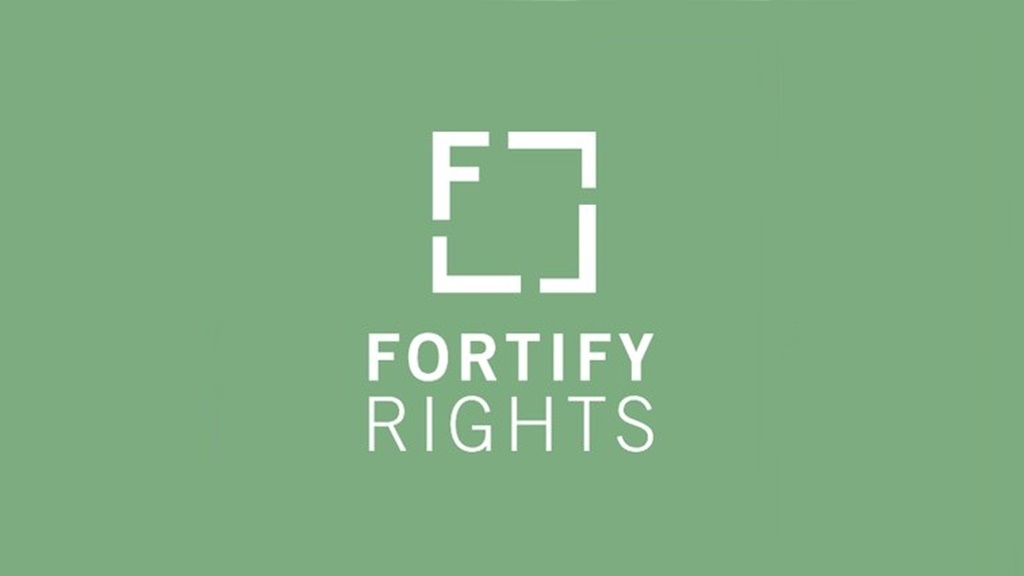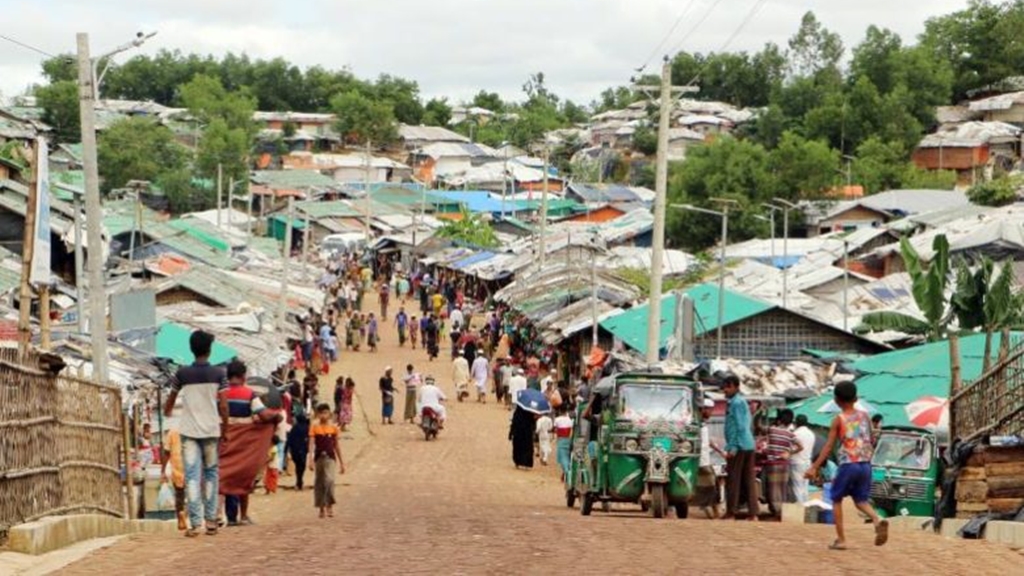
Malaysia: End Immigration Raids and Detention, Support Migrants and Refugees Amid COVID-19
- 23/06/2020
- 0
Refugees describe struggle to survive during pandemic
(KUALA LUMPUR, June 23, 2020)—The Government of Malaysia should end arbitrary arrests and detention of refugees and migrants, said the Rohingya Women Development Network (RWDN) and Fortify Rights today. RWDN and Fortify Rights interviewed 13 Rohingya refugees in Malaysia who described the ongoing risk of arrest and the effects of restrictions on movement and access to livelihoods.
“Malaysia should stop arresting and detaining all refugees,” said Sharifah Shakirah, founder and Director of RWDN in Malaysia. “Instead, the government should provide basic protections to refugees and migrants during this global crisis to prevent the spread of the virus.”
On June 14, the Malaysian Health Ministry reported that a 67-year-old man from India died on June 12 from COVID-19 at the Bukit Jalil Immigration Detention Center (IDC), located outside of the capital, Kuala Lumpur. The ministry reports at least 735 cases of COVID-19 in IDCs across Malaysia.
On June 14, Health Director-General Datuk Dr. Noor Hisham Abdullah reported the death during a press briefing, saying: “He was found unconscious at the center . . . He was confirmed dead on Friday [June 12] and a COVID-19 test returned positive.” During an earlier press briefing on May 26, Dr. Noor Hisham Abdullah acknowledged the IDCs as “high-risk areas” for the spread of COVID-19.
Despite the heightened risk of COVID-19 transmissions in detention facilities—both to detainees and staff members—Malaysian authorities continue to arrest and detain refugees and migrants.
The Malaysian authorities have denied the United Nations High Commissioner for Refugees (UNHCR)—the U.N. agency mandated to protect refugees—access to Malaysia’s detention centers since August 2019.
Malaysian authorities rounded up and detained thousands of other refugees and migrants during a series of immigration raids starting on May 1 within designated Enhanced Movement Control (EMCO) areas. EMCOs are areas where a high number of COVID-19 cases have been reported. The authorities barricaded some EMCO areas with barbwire fencing and refused to allow residents in these areas to exit their homes.
On May 21, U.N. Special Rapporteur on the Human Rights of Migrants Felipe González Morales and other United Nations experts called on Malaysian authorities “to refrain from raiding locked-down areas to arrest and detain migrants . . . Alternatives to detention should always be considered first.” The U.N. Working Group on Alternatives to Immigration Detention and the Office of the High Commissioner for Human Rights also urged states to end immigration detentions and release detainees amid the COVID-19 pandemic “to protect the rights and health of migrants and staff in immigration detention facilities.”
On June 10, the Malaysian government replaced the earlier Movement Control Order (MCO), which the government put in place on March 18 to suspend non-essential business operations and unnecessary travel throughout the country, with a Recovery Movement Control Order (RMCO). Under the RMCO, the government continues to limit the size of gatherings and the number of people allowed to work and shop inside business establishments. The RMCO is expected to remain in place until at least August 31. Despite the easing of COVID-19 related restrictions, refugees and migrants continue to have trouble accessing livelihoods and making rent payments.
Further complicating the situation for refugees, Kuala Lumpur City Hall banned refugees from entering the Wholesale Market in Selayang—a large outdoor market relied on by residents in the area to secure fresh, affordable food. On June 19, Mayor Datuk Nor Hisham Ahmad Dahlan said, “All UNHCR card holders are denied entry.”
In April and June, RWDN and Fortify Rights interviewed 13 Rohingya refugees, including five women, as well as members of civil society organizations in Malaysia working with refugee and migrant communities about the effects of COVID-19.
One Rohingya refugee said he has struggled to pay rent ever since the government introduced the movement restrictions: “We don’t have work, so we requested the government for support . . . [We] continue to struggle to pay the rent for our house.”
Without the right to work in Malaysia, refugee livelihoods largely depend on the informal economy where they work as day laborers in hospitality, construction, and factories often earning less than 1,000 Malaysian Ringgit (US$250) per month. As informal workers without legal status in Malaysia, refugees are ineligible for benefits provided by the government under the Prihatin Rakyat Economic Stimulus Package, which includes a wage subsidy program to support workers with monthly incomes of 4,000 Malaysian Ringgit (US$900) or less.
A 35-year-old Rohingya refugee woman in Kuala Lumpur similarly described challenges covering rent, telling RWDN:
Last week [in April], my landlord and her family came to my house for the rental [money], and when I said I was unable to pay now because I can’t go out to work since last month, the landlord and her daughter beat me [with a stick] while her husband threatened me by grabbing a stone in his hand.
Refugees also described growing food insecurity.
“If the food we have now runs out, God knows what will happen to us,” a Rohingya refugee woman, 25, said. “There will be huge problems.”
“We refugees are going to die from hunger, not because of COVID, but because of a lack of food,” said a refugee woman, 27, in Kuala Lumpur. “And [if we] can’t pay the rent, the landlord will kick everyone out.”
“I’m unable to do anything other than sleep in hunger,” added a 48-year-old Rohingya single mother. “I am afraid I’ll be kicked out of the house.”
A June 2020 study conducted by Mixed Migration Centre Asia found that 80 percent of Rohingya refugees and Bangladeshi migrants surveyed in Malaysia required extra support as a result of the COVID-19 pandemic, with food, water, and shelter being the most urgent needs cited.
During the recovery period from the pandemic, the Government of Malaysia should ensure refugees and migrants are provided with tailored protections to address their specific needs, including access to food and ability to pay for accommodation, said RWDN and Fortify Rights.
As of February 2020, more than 178,900 refugees in Malaysia were registered with the U.N. refugee agency. The total number of refugees in the country is likely much higher. Rohingya refugees from Myanmar comprise more than half of all of Malaysia’s refugee population.
The Malaysian government should ratify the Convention Relating to the Status of Refugees and its 1967 Protocol, said RWDN and Fortify Rights.
Rohingya continue to face genocide and other international crimes in Myanmar, and migration routes available to them remain deadly. There are more than a million Rohingya refugees in refugee camps in Cox’s Bazar District, Bangladesh who are at risk of a COVID-19 outbreak.
“Malaysia should ensure all refugees have legal status and access to basic support mechanisms,” said Amy Smith, Executive Director of Fortify Rights. “This is about public health as well as human rights.”






